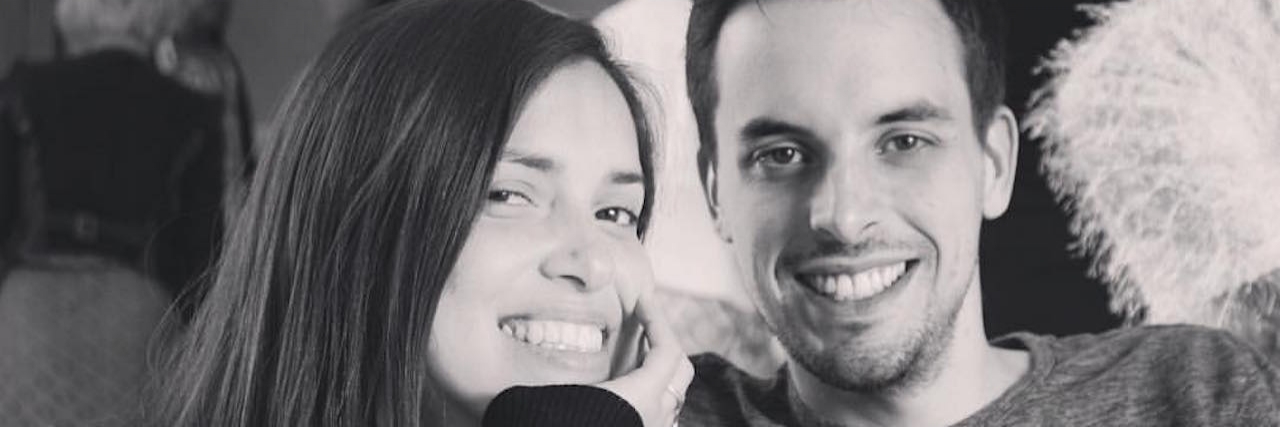To Those Who Think Chronically Ill Immigrants 'Overuse' the Health System
The referendum of June 23, 2016 and its results to “Leave the EU” has brought a wave of consequences. The one more concerning for me, personally, is the increase of hate crimes in the UK, particularly because I am not British — I am an immigrant, and it feels inevitably personal.
I feel shocked and scared every time I check the press and read of something new, like the graffiti on the Polish Social and Cultural Association asking Polish people to leave the UK, or the video of those young men in a tram in Manchester shouting to an American man to leave the tram, among other insults; sadly this is only the beginning of a long list of incidents that have occurred since then.
It’s very frightening.
What if something like that happens to me?
I am a South American immigrant and, according to my husband, you can notice my Latin face one mile away, so there is no chance for camouflage among British faces.
But that is not all. I am something more than just an immigrant.
I am an immigrant and I am also sick.
Does that mean I am a double problem for this country?
A lot of people believe receiving immigrants should be like an exchange: “I receive you in my country but you give me something in return.” That means to pay your taxes and hopefully be a highly qualified professional. I don’t think that includes using resources from the health system, does it?
People like me, with a chronic illness, are obviously more expensive for the health system than the people who only get a cold once a year. I have lupus and multifocal avascular necrosis, therefore, I “overuse” the health system with constant visits to the GP, specialists, and large prescriptions, meaning a big expenditure of money from the country.
“A lot of people do what you did, come to this country to use our health system, that’s why you need to wait” is what a person told me once, referring to the waiting time for a hospital appointment.
Shocking.
First of all, I didn’t do that. I just came to live in another country.
And to be honest, I didn’t even know how the health system was.
In Chile, I found the health system to be very responsive for my lupus. It includes the GES plan (Garantías Explícitas en Salud, “Explicit Guarantees in Healthcare”) that guarantees access to the necessary attention for 80 pathologies including lupus. In simple words, the system guarantees quality medical attention, in a reasonable waiting time, and the financial coverage for this, services and treatment.
Even when I was living in Chile I chose to pay for private attention, just as a personal choice, but I was still receiving my treatment equivalent to around £600 a month, just for £20.
When I made the decision to leave my country, I was only thinking about my happiness and I felt that I was completely free to do whatever I wanted to, like any other person, I think.
I never thought I was putting my health at risk, even if I should have.
I never thought I was leaving behind all those guarantees to face a completely different reality, for better or for worst.
I was just thinking about me the person, not me the sick one.
All of us, meaning the people that live with a chronic illness, want to be like everybody else. We do whatever it takes to not being defined by our condition, but for who we really are. I am not lupus and avascular necrosis, even if is a big part of me. I am something else. I am a woman, happily married, not a mother yet but dreaming about it, I love and miss my family every day, I like music and eating out, I like “Master Chef” and lately I’ve been exploring my writing skills and practicing to get better.
That is me.
I am not an illness. I am so much more, and that is all I put in my luggage when I came.
However, I shouldn’t be explaining myself.
Whatever is the reason why a person decides to emigrate to a foreign country, who are we to judge?
Not every country has the same situation and not every person has the same needs, so is there any harm in trying to build a better future for you and for your family?
We should be proud of the people who take control of their lives and decide to discover what is on the other side of those boundaries.
You really need to be a badass.
It takes courage and determination to leave your comfort zone betting that what you will find will be better, whatever “better” means for you: safety, happiness, more accessibility or just a bigger city.
I came to be happier.
I live in London and what I like most is the multiculturalism of this city, its diversity. What we can learn or share with people from different backgrounds is limitless and this can only make us more complete as human beings and helps us recognize the world as a whole, rather than just like a piece of land full of boundaries.
This blog was originally published on Chronic Survivor.

